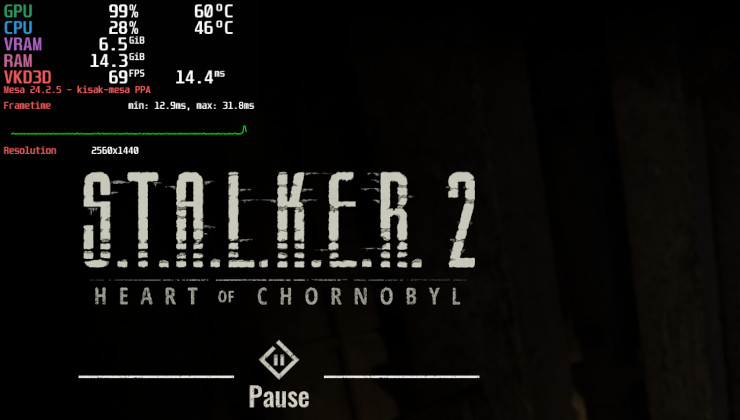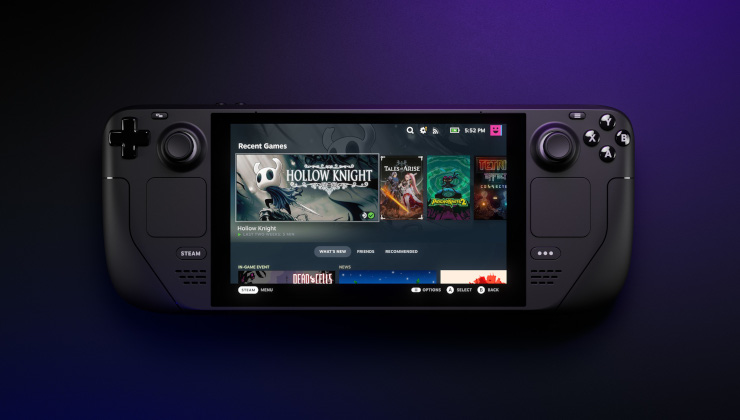Valve and game developers have a bit of a fight on their hands here, with a French court ruling that Valve should allow users to re-sell their digital games.
Reported by the French website Next Inpact, the French consumers group UFC Que Choisir had a victory against Valve as French courts have ruled against them on the topic of reselling digital content. From what I've read and tried to understand, the courts have basically said that when you buy something on Steam it is indeed a proper purchase and not a subscription.
Valve has been ordered to pay damages at €20K plus €10K to cover some costs. On top of that, they will also have to publish the judgement on Steam's home page (presumably only for users in France) and for it to remain visible for three months. If they don't, they will get a fine for each day of €3K. To Valve though, that's likely pocket change. The bigger issue though, is how other countries inside and outside the EU could follow it.
Speaking to PC Gamer who got a statement from Valve, they are going to fight it. Of course they will though, they could stand to lose quite a lot here and it would set a pretty huge precedent for other stores like GOG, Epic, Humble, itch and all the rest.
There's a lot to think about with this situation. Valve could end up changing the way they deal with this, just like they did with the nicer refunds option which came about after legal issues too. Imagine being able to sell and transfer a game over to another Steam user. Valve could take a cut of that most likely too.
Something to think on there is how this could affect game developers too, I'm all for consumer rights but I do try to think about all angles. We could end up looking at higher prices overall, no release day discounts, more micro transactions, more games updated as a constant service, games that require an online account as a service so you're not paying for an actual product and so on as developers try to keep more income when many smaller developers are already struggling.
Interesting times.
Hat tip to Nibelheim.
Why shouldn't my 20 year old disks count? I have several dozen optical disks, and, as said, I have yet to see a single one as unreadable and decades.Also, let's assume for a moment we really have a physical storage medium that hardly has any wear. I don't know, maybe some holographic wireless storage that can't corrupt and has no contacts that can corrode.
Would anyone argue, that just because the physical product you bought doesn't get destroyed with time you should not have the right to sell it?
I think the issue we are discussing here is one of ownership. I can't understand why people are so willing to play along and just completely accept that things you buy and are by all means presented as if you buy them are not your property.
And sure, this will cause some headache for the game industry, but in the end they will adapt and hopefully not in the bad way in that they try again with such tricks to prevent us from owning the products they sell us.
Also, coming back to physical copies. They don't just deteriorate and are gone. Some of those products even gain in value over time. If you have even a semi old collection of games, it will not be hard to find at least one product people will pay vastly more for than you actually payed originally. You don't get that with digital copies, and that is a pretty good compensation for the fact that it doesn't deteriorates. Still, it should be something we own if we payed for this product.
Last edited by ZeroPointEnergy on 22 Sep 2019 at 9:17 am UTC
Why shouldn't my 20 year old disks count? I have several dozen optical disks, and, as said, I have yet to see a single one as unreadable and decades.Also, let's assume for a moment we really have a physical storage medium that hardly has any wear. I don't know, maybe some holographic wireless storage that can't corrupt and has no contacts that can corrode.
Would anyone argue, that just because the physical product you bought doesn't get destroyed with time you should not have the right to sell it?
I think the issue we are discussing here is one of ownership. I can't understand why people are so willing to play along and just completely accept that things you buy and are by all means presented as if you buy them are not your property.
And sure, this will cause some headache for the game industry, but in the end they will adapt and hopefully not in the bad way in that they try again with such tricks to prevent us from owning the products they sell us.
Also, coming back to physical copies. They don't just deteriorate and are gone. Some of those products even gain in value over time. If you have even a semi old collection of games, it will not be hard to find at least one product people will pay vastly more for than you actually payed originally. You don't get that with digital copies, and that is a pretty good compensation for the fact that it doesn't deteriorates. Still, it should be something we own if we payed for this product.
I very much agree with you!
In fact, my original post said very similar things as yours. I had say that (while I strongly doubt it would ever really happen) I hoped physical distribution would come back... and that just lead a few (including myself) into a debate over the merits of optical disc storage vs hard drive storage. :)
I read that people who buy GoG games do not distribute them a lot ( How do we know that ?). I wonder if that would change if people could sell their GoG game but still keep the binary on their hard disk.They can. What's to stop them? It's DRM free. They can copy the files and give them away or sell them. Not legally of course, and yes by all accounts people don't as a rule.
On the other hand, if you meant legally then this ruling would not allow any such thing. If you sold a game you would have to no longer have it yourself. This ruling does not grant the right to make and sell copies, that would be copyright. It grants normal consumer rights to transfer one's property to someone else.
Last edited by Purple Library Guy on 22 Sep 2019 at 6:49 pm UTC
I was just wondering if this will modify the behaviour of the GOG buyers. I hope not. Of course the law would not allow copyright infringement.Oh, I see what you mean. Good point.
But there is a difference between restraining from distributing your DRM free game through piracy channels and erasing your own copy of the game after you have sold it out of sheer honesty.
One seems (to me) more easy to do than the other.
My main question is whether this can be enforced for any games on Steam other than Valve's first party games. I mean, the license holder is usually the publisher or developer, so Steam could have serious issues if they are told to allow something that they may not legally have the right to do.
The publisher/developer would be held to the very same ruling if they publish/sell their games as digital downloads in EU so this would only be a legal problem in Valve vs Publishers if the publishers would have no way to opt out of EU.
Valve is only included in the lawsuit as a test case for the law that already exists, now that a court have ruled that the law in question does apply to digital stores such as Steam it applies to every other single store that sells digital downloads in the EU region, which includes the publishers (aka a publisher who sells their games via digital downloads are not allowed to ban resale).








 How to set, change and reset your SteamOS / Steam Deck desktop sudo password
How to set, change and reset your SteamOS / Steam Deck desktop sudo password
See more from me